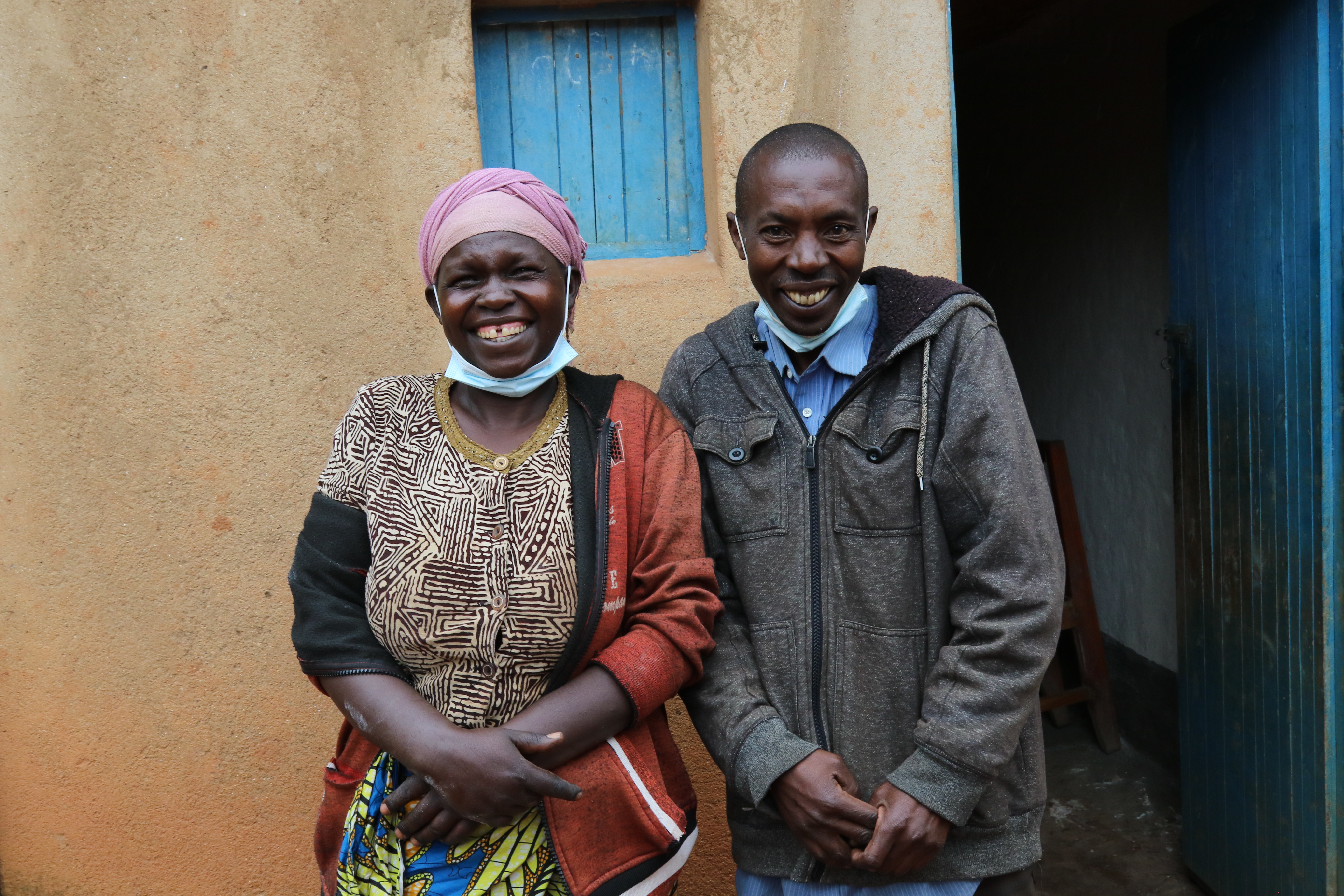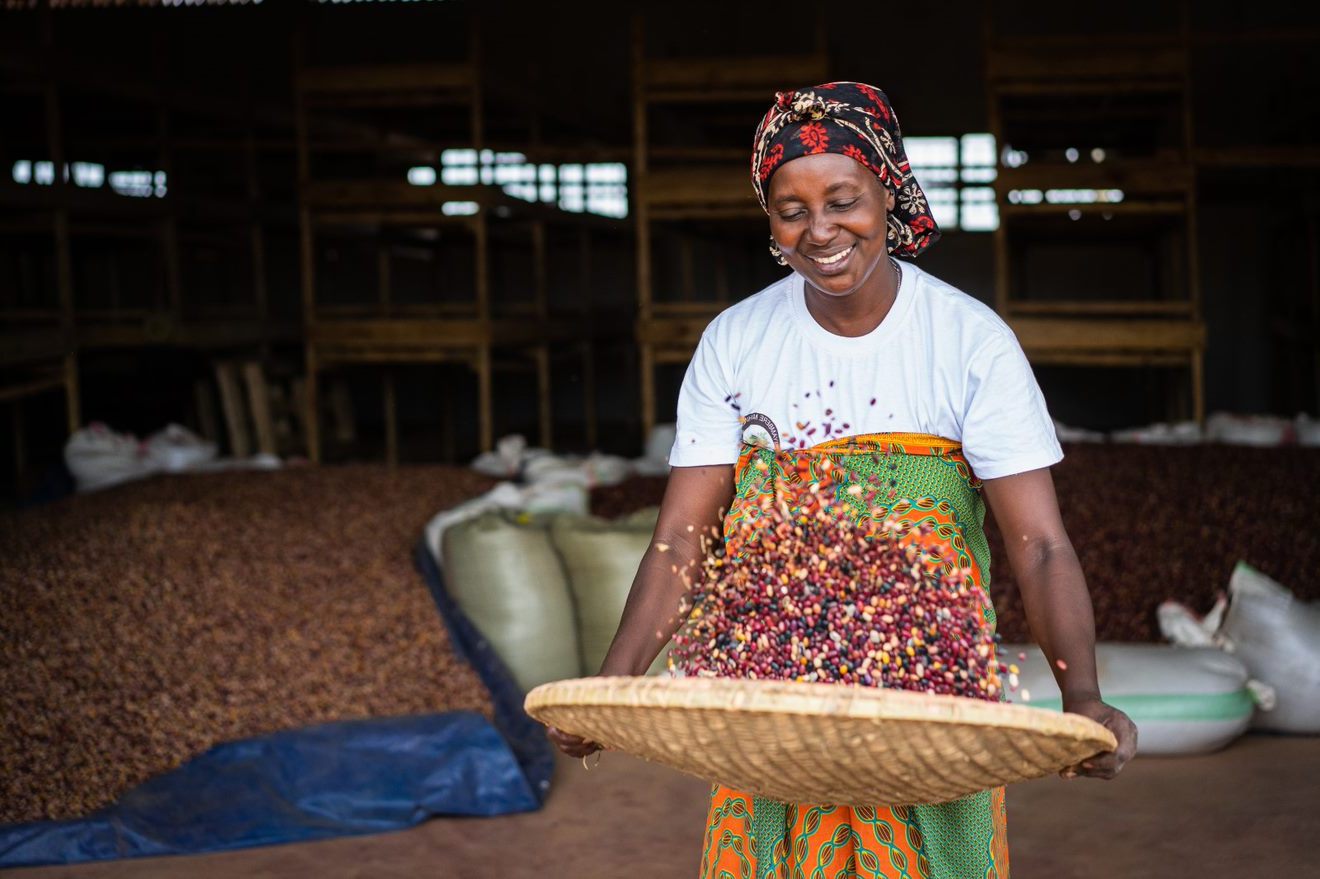
How the World Food Programme finds ways to get food to students amid the pandemic
December 30, 2020 | By Amy KoverAntoinette and Vincente have spent most of their adult lives working on farms in southern Rwanda. A quarter of the working population in the East African country gets by on subsistence agriculture, many on farms with less than an acre of land. Known as the “Land of a Thousand Hills,” farming is particularly grueling on the country’s steep slopes. Rwanda must also deal with increasingly unpredictable weather patterns due to climate change. This has made growing conditions and harvests much more uncertain, endangering food security in a country where one in five people are food insecure.
All of which means that for Antoinette and Vincente, feeding their four children has never been easy. The pair has been married for over 22 years and first met at the same primary school their children now attend. When Antoinette and Vincente’s kids went to school, the couple breathed a sigh of relief because they knew the children would receive two meals per day — breakfast through a school feeding program run by the United Nations’ World Food Programme (WFP), which provides meals for 79,000 Rwandan primary students each day, and dinner with family.
But when COVID-19 hit in March 2020, the children’s school closed. Thankfully in June, a few months after the outbreak, the family was able to pick up locally sourced take-home rations at the school provided to all families who were already using the WFP school feeding program. WFP was able to support families with another take-home ration in November.

Antoinette and Vincente describe life in Rwanda during the COVID-19 pandemic. Photo: WFP/Emily Fredenberg
The food helped keep Antoinette and Vincente’s family fed at a time when they had both lost their jobs due to the pandemic. “Our family has struggled during COVID-19,” Antoinette says. “This take-home ration from WFP makes a big difference in our lives when we are truly struggling to put food on the table.” Fortunately, WFP was able to resume the school feeding program when schools partially reopened in November for older primary students, which has been a great relief for the couple.
The largest humanitarian organization in the world, WFP has been feeding families in need around the world since 1961. Last year, it fed close to 100 million people in 88 countries with direct emergency relief. WFP also runs programs that assist smallholder farmers — helping them enhance production and quality to access higher value at markets — as well as combatting malnutrition. WFP works to connect such farmers to programs like the WFP school feeding program that support local food production. These efforts are designed to help achieve the Global Goals, specific goal 2: Zero Hunger. In recognition of WFP’s work to end world hunger as a critical first step towards achieving lasting peace, the organization was named the 2020 Nobel Peace Prize Laureate in October.
Since their partnership began in 2012, Mastercard has helped WFP provide meals in some 30 countries around the world by raising funds and awareness. It has also helped advance WFP’s operations through expertise sharing. As part of the company’s partnership with WFP, employees volunteer to spend a month in WFP countries – in 2019, that included Guatemala, Liberia and Madagascar – providing a complimentary cost-benefit analysis of the school feeding program.
Not only do the meals provide sustenance, but they are potent educational tools. Brains need nutrients to develop, and learning is easier on a full stomach. WFP’s food also helps get children into the classroom.
“The programme is an incentive for parents to send their kids to school, explains Mariana Prudencio, a Paris-based Mastercard employee who spent a month in Guatemala last year analyzing the economic benefits of investing in school meals. “It makes it easier for parents to feed them.” This work has demonstrated that every $1 invested in school meals programs yields an economic return of $3–$10 from improved health, education and productivity.
As schools all over the world have shut down this year, the pandemic has underscored just how vital formal education is to a child’s well-being. WFP estimates that the number of acutely food insecure people in the countries where it works could increase by 80% — from 149 million in 2019 to 270 million before the end of 2020. At the pandemic’s peak, some 370 million schoolchildren in 199 countries missed out on school meals.
In response, in addition to offering take-home rations, vouchers, or cash transfers to children in 49 countries, the team also used the time in lockdown to add infrastructure to the schools that help keep kids safe and clean. They installed more sanitary food preparation facilities and connected schools without water to nearby water pipes.
Unfortunately, the factors that caused hunger before the pandemic remain. For instance, nearly 138,000 refugees from Burundi and the Democratic Republic of Congo depend on WFP Rwanda for food. And climate change-induced torrential rain devastated Rwandan crops last year.

WFP works to connect smallholder farmers in Rwanda to formal markets and to programs like the WFP school feeding program to support local food production. Photo: WFP/ Badre Bahaji
Yet the WFP team in Rwanda keeps going. Some of its employees were recipients of WFP assistance themselves when the country endured one of the worst genocides of the 20th century. “It’s a heartwarming story to see people who have been through their darkest hour giving back to their community,” WFP Rwanda communications leader Emily Fredenberg says of her colleagues.
Those grim memories also explain why the group in Rwanda was so overjoyed when its organization was awarded the Nobel Peace Prize this fall. “This award isn’t just for us,” Fredenberg says. “It’s a recognition of the people who are hungry in the world, that they have a right to live without hunger.”